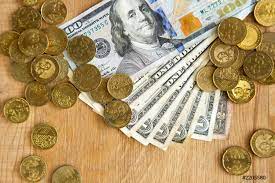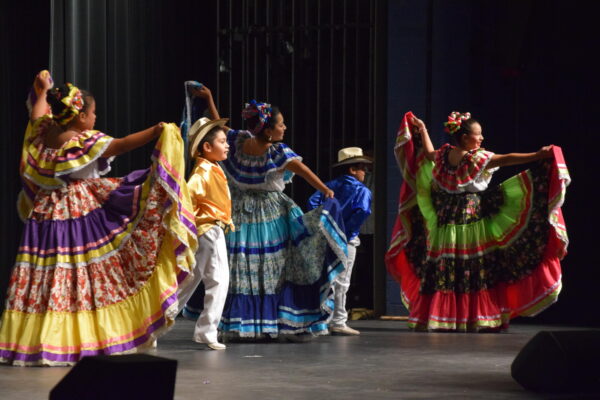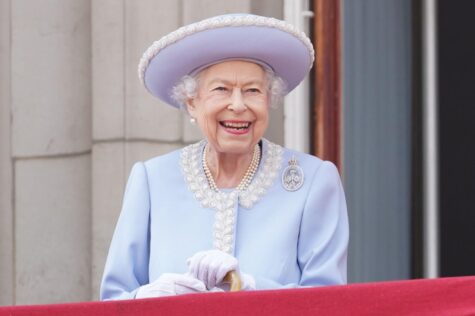Factions of History: Their Story Then and Now

Some people say that money is a necessary and useful part of life; a part of advanced civilization. Others say that it is the root of all of the world’s problems. Both points of view may be right – but, whether it is a good or a bad thing, it has certainly always been important. And with money, there came to exist economic and political systems which still remain today. After reading the article, the Criterion encourages you to respond in the comments which system sounds the best to you!
The invention of money
Though trade was originally much more common than minted currency, the first coins emerged in the same place as the first civilization. Yes, Mesopotamia. And over time, those coins started developing further and further throughout the Ancient time period. The Greeks, who initially just bartered and traded, discovered that minting coins made things much easier. They even became a sign of the Greek city-states’ independence – each one made its own coins.
That wasn’t the end, though. In an imitation of the Greeks, the Roman Republic also began using coins to appear more “civilized”. Centuries later, when the first Roman emperor seized power, the Roman coins began to be minted with the Emperor’s face on them as a show of power. This would be something that would continue throughout the medieval period, and eventually transition to paper money in the modern times. Printing leaders’ faces on money is not something that has stopped – just look at George Washington on the $1, Abraham Lincoln on the $5, or Alexander Hamilton on the $10 bill.
The Factions: What’s their story?
The author of this article is currently attempting to analyze ten different factions which have shown themselves in history and today. The Criterion will show these as they relate to an example organization, the Contra Union. What are these factions anyway?
- Royalists – they believe in a monarchy, and their views lean towards the authoritarian side due to the presence of a king or queen. The Royalists are more on the side of traditional than radical, but they are more moderate in this sense. The example organization, the Contra Union, embraces some royalist views, but they don’t believe in allowing the ruler too much power.
- Feudalists – Taking after more traditional views, the Feudalists believe that the natural order of feudalism should be established. This involves little movement between classes, but ensures that all people are cared for. Feudalism involves peasants and farmers being protected by but essentially working for a lord, who pays homage to another lord, eventually leading up to the king.
- Capitalists – The Capitalists believe in a free market, in which any people can privately expand their fortunes without government intervention. They lean away from authoritarianism and towards democracy, as the people can hold power, but are more conservative than radical. Downsides include that the gap between wealthy and poor increases.
- Communists – The Communists are one of the most controversial ideologies, but still allowed by the Contra Union. They believe that the government should be able to regulate the equality of the people, and while they are radical and democratic in theory, the power invested in the government sometimes leads to dictatorship.
- Unionists – The Unionists are a newly formed political ideology, being the most moderate out of all the ideologies. They believe that the people should hold a good amount of power and be able to rise through merit, but still think that the government should hold enough power to keep the peace. The Unionists, unlike the Socialists, believe that a monarchy and nobility are fine.
- Socialists – While the Socialists are liberal, they are not as radical as Communists or Anarchists, and are therefore more accepted by the Contra Union. They lean towards democracy as well, believing that the government should have some power, invested in them by the people.
- Anarchists (ILLEGAL to the Contra Union) – Radical, Democratic – Anarchy is, in the author’s opinion, “a bad idea”. It basically means no government… which might sound good at first, but trust me, living in an anarchist society would not be enjoyable.
- Nationalists (Disapproved by the Contra ) – Their main view is making their nation powerful and united, and then attacking other nations. Because of this, nationalism is disapproved, though nationalists are allowed to remain in the Contra Union as long as they are not too extreme.
- Imperialists – Imperialism holds that powerful countries or nations should extend their rule over other weaker countries that could use their protection. Often headed by a monarch, Imperialists believe in military power and conquest, so they are viewed warily by the Contra Union.
- Mercantilists – Mercantilists believe that money, specifically gold and silver, mean power. They are similar to Imperialists or Capitalists, except rather than using military or conquest to expand their power, they prefer to use trade. Mercantilism, like Imperialism, is viewed with caution by the Contra Union.
The Criterion encourages readers to respond in the comments which faction sounds the best to them.

Oliver Kohn is a 16-year-old senior at Craig High School. He is in his second year on the Newspaper. He has enjoyed writing stories for nearly a decade...








